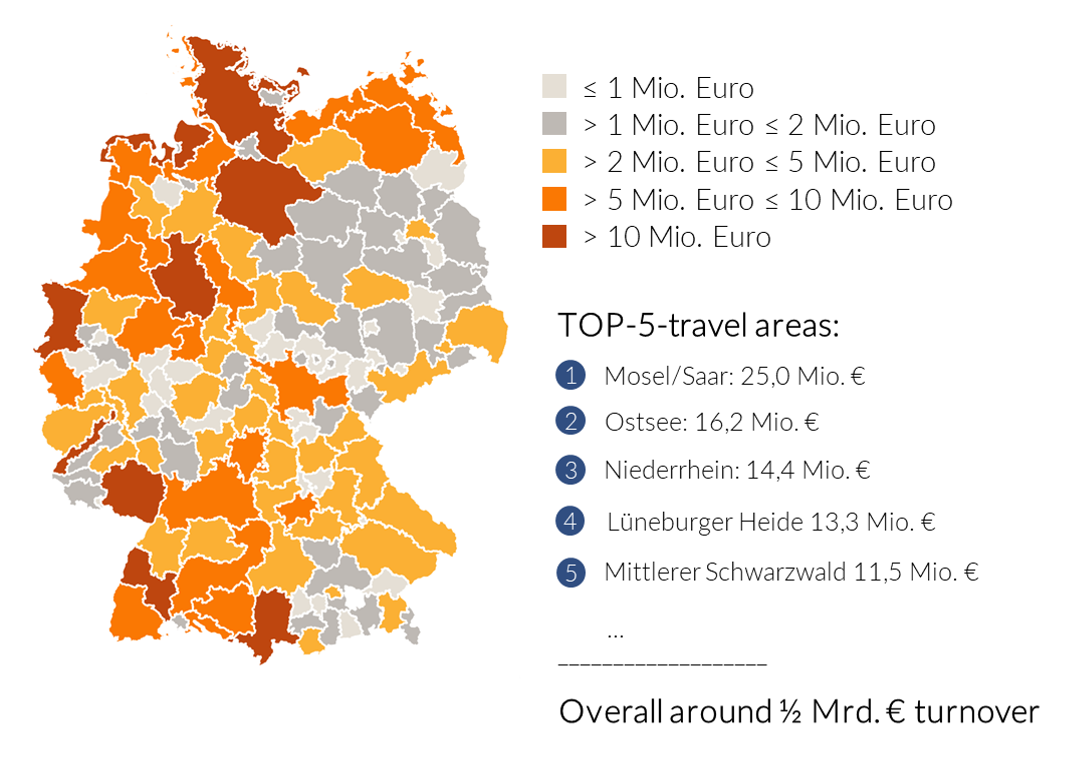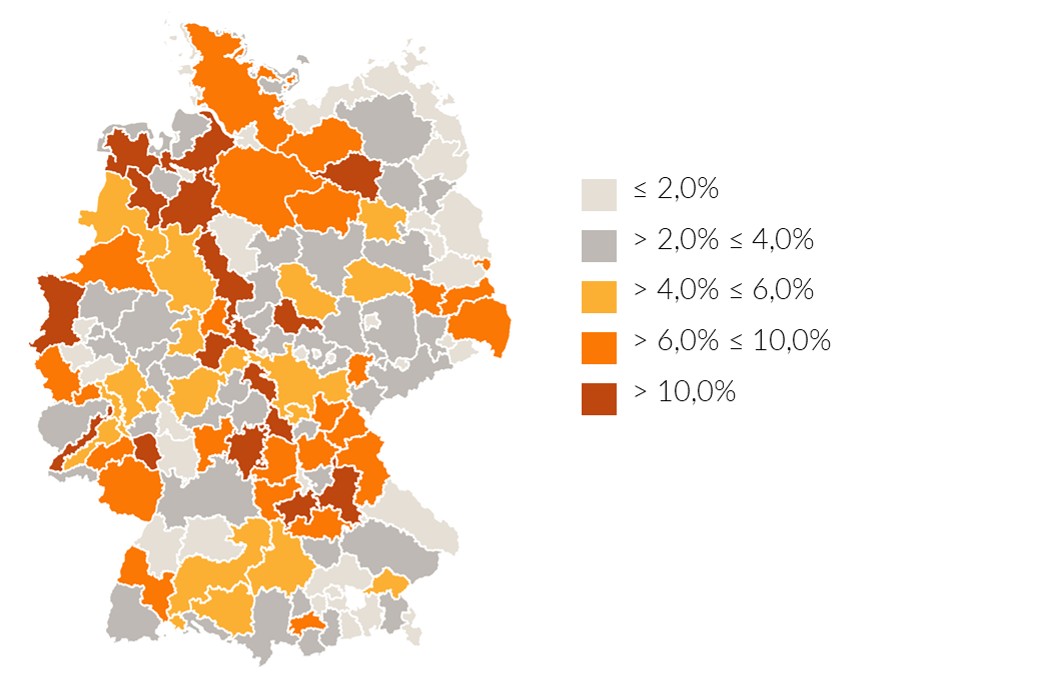Fundamental Study: Economic Impact of Caravan Tourism
The dwif has highlighted the significant economic relevance of camping and motor caravan tourism in Germany, analyzing regional needs in this sector.
- Key features of the camping market: Including an overview of supply (e.g., campsites, motor caravan parking areas, vehicle inventory) and demand (e.g., overnight stays, day trips).
- Economic effects of camping and motor caravan tourism: Quantifying revenues and their contribution to income, taxes, and employment, while considering intersectoral linkages.
- Target group differentiation: Examining key market segments such as tourist camping, long-term camping, and motor caravan tourism.
Focus Topic: Motor Caravan Tourism
The dwif also analyzed the demand for motor caravan parking spaces across Germany’s travel regions, identifying regional potentials for motor caravan tourism. Revenues range from regions generating less than €2 million annually in 2020—mostly in Eastern Germany (excluding Mecklenburg-Vorpommern’s coastal areas)—to regions achieving over €10 million in revenues. The latter includes five regions spanning from Schleswig-Holstein to Allgäu in Western Germany.

- Unterelbe-Unterweser (23.4%)
- Haßberge (22.6%)
- Mittelweser (18.0%)
- Franconian Lake District (16.2%)
- Werra-Meissner Land (14.9%)
- Franconian Wine Region (13.1%)
- Moselle/Saar (13.0%)
- Thuringian Rhön (12.7%)

Guidelines and Support for Decision-Makers
To provide practical support, the study includes a detailed potential guideline for assessing the demand and potential of motorhome parking areas. This guide also lists additional resources and consultation services addressing key aspects of planning and operating such sites, including the planning aid from the CIVD.
The researchers further developed three case studies, presenting site-specific concepts for parking space development in diverse regions—Uckermark, Starnberg Lake District, and East Frisia. Additionally, the study examines successful examples from practice in detail.
